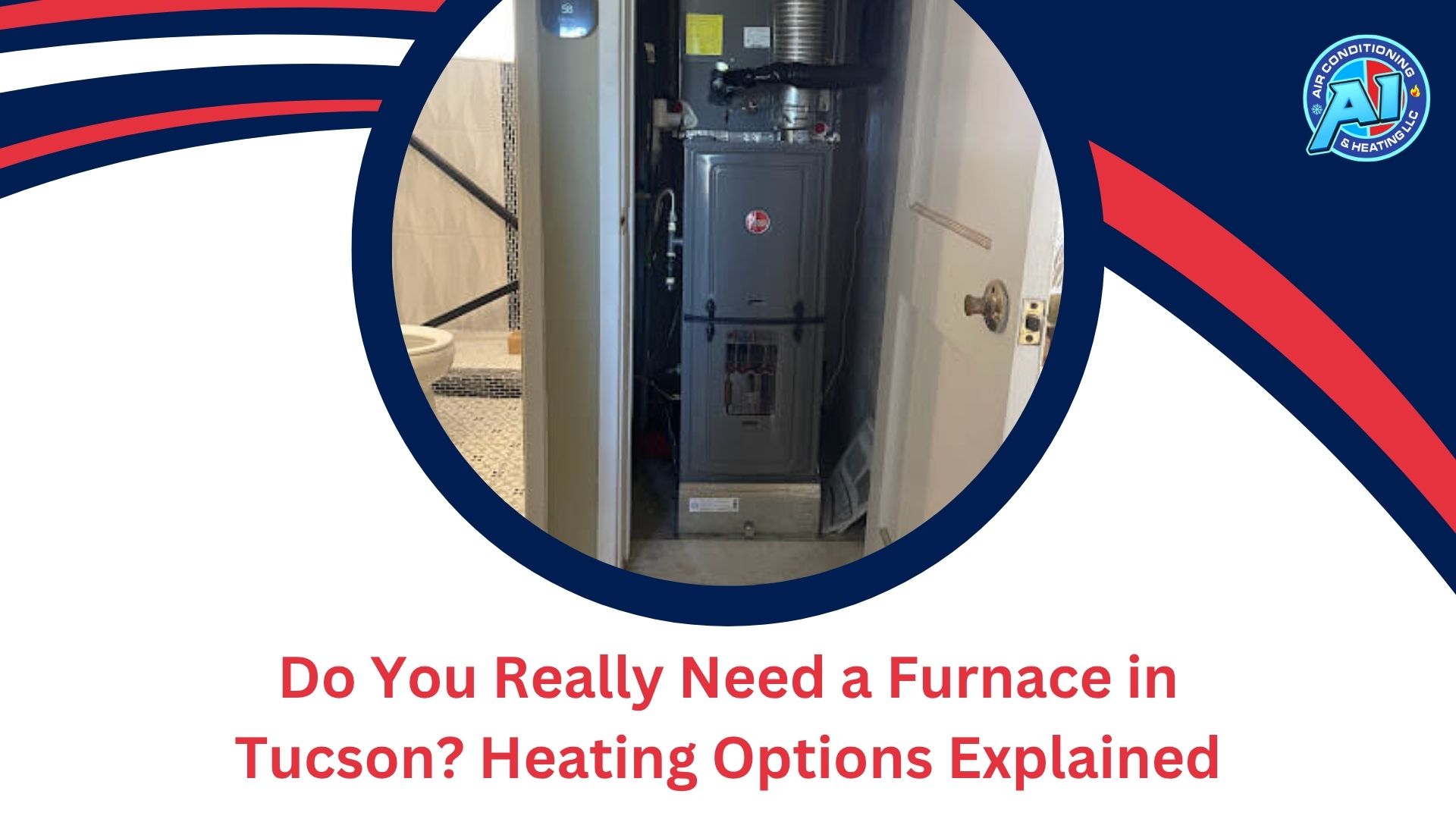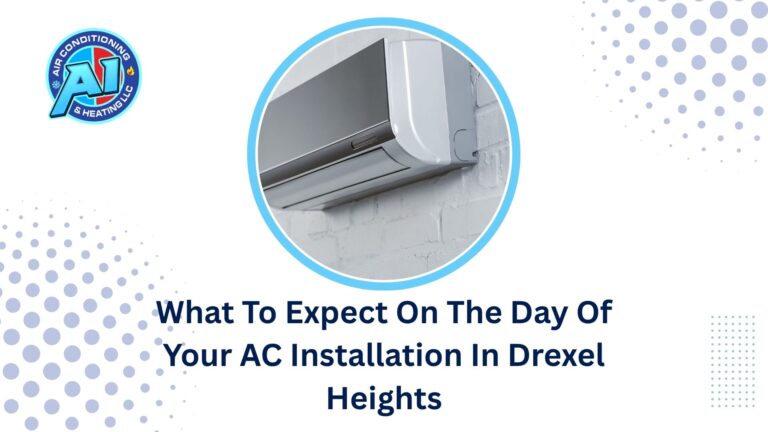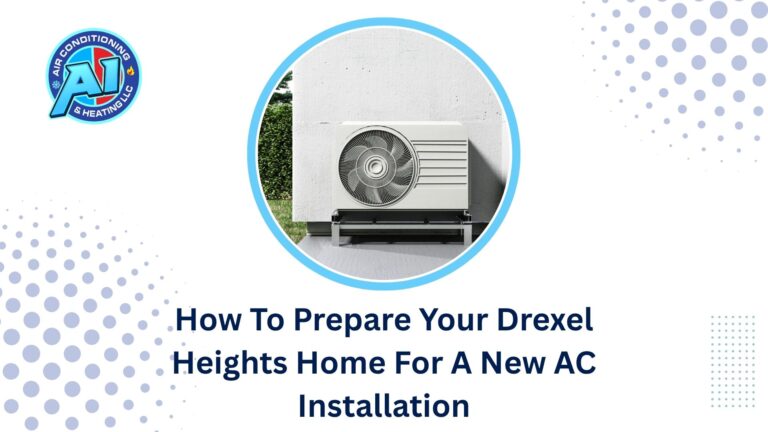Furnace options in Tucson can be misleading, especially when warm temperatures dominate most of the year. However, the colder months do bring chilly nights, making it crucial for you to consider your heating needs. Ignoring proper heating solutions may lead to discomfort and increased energy costs. While traditional furnaces provide reliable warmth, alternatives like heat pumps or electric heaters could be suitable for your home. Understanding these options allows you to make an informed decision that balances efficiency and comfort in your living space.
Key Takeaways:
- Tucson’s climate generally requires minimal heating, making traditional furnaces less common.
- Alternative heating options include space heaters, heat pumps, and mini-split systems.
- Energy efficiency and cost-effectiveness are vital considerations when selecting a heating option.
Understanding Tucson’s Climate
Tucson experiences a desert climate, characterized by hot summers and mild winters. Daytime temperatures in winter rarely drop below comfortable levels, influencing how residents approach heating their homes. Understanding the specifics of the climate helps you evaluate the need for conventional heating solutions and consider alternatives that suit the warm conditions of the region.
Average Winter Temperatures
Average Winter Temperatures in Tucson
| December | Average High: 64°F, Average Low: 39°F |
| January | Average High: 62°F, Average Low: 38°F |
| February | Average High: 65°F, Average Low: 41°F |
Humidity Levels and Their Impact
Humidity in Tucson tends to be low, especially during winter months, which affects how temperatures feel in your home. While average winter humidity can hover around 20-30%, this dryness can lead to discomfort and increased heating needs during cooler weather.
Low humidity can exacerbate the chill during colder nights, making it feel colder than the actual temperature. You might find that even milder temperatures necessitate some form of heating to maintain comfort. Incorporating solutions like space heaters or heat sources designed for arid climates can help offset the effects of dry air, allowing for a comfortable indoor environment without the reliance on a traditional furnace.
Importance of Heating in Tucson
Even in Tucson’s mild winters, adequate heating remains crucial for comfort and health. With nighttime temperatures sometimes dropping to the mid-30s °F, having a reliable heating solution ensures your living space is warm enough to foster well-being during the colder months. You want to avoid the discomfort of chilly nights, especially when temperatures can fluctuate abruptly.
Health and Comfort Considerations
Maintaining a comfortable indoor temperature supports your overall health. Prolonged exposure to cold can lead to various health issues, including respiratory problems and reduced immune function. You need a heating solution that keeps your home cozy, especially if you have young children, elderly family members, or anyone with preexisting health conditions that can be aggravated by cold weather.
Energy Efficiency and Cost Savings
Investing in energy-efficient heating options can significantly reduce your utility bills. Your heating system should operate effectively without draining your wallet, especially during the colder months. Consider solutions like heat pumps or energy-efficient space heaters, which can provide warmth at a fraction of traditional heating costs.
For example, Energy Star-rated heat pumps can deliver up to 300% efficiency when it comes to heat production, compared to conventional electric heaters. This means for every unit of energy consumed, you receive multiple units of heating output. Coupling these systems with programmable thermostats can further enhance savings, allowing you to regulate temperature according to your daily routine. By evaluating your options, you can ensure that maintaining warmth won’t break the bank this winter.
Options for Heating in Tucson
Your heating options in Tucson primarily focus on adapting to the mild winter temperatures. With an average low of around 40°F, you can consider various heating solutions that cater to your needs. Popular choices include traditional furnaces, heat pumps, and space heaters, each offering different benefits depending on your home’s layout and your specific requirements.
Furnaces: Pros and Cons
Furnaces can effectively provide reliable warmth, yet they come with both advantages and drawbacks.
| Pros | Cons |
| Provides consistent heat | Higher installation costs |
| Fast heating response | Less energy efficient than alternatives |
| Works in various home sizes | Requires regular maintenance |
| Long lifespan | Can dry out indoor air |
| Good for larger spaces | Potential safety hazards if not serviced |
Alternative Heating Solutions
Heat pumps and space heaters are popular alternatives to traditional furnaces in Tucson. These options are particularly suitable for the region’s milder winters, providing efficient and flexible heating without the bulk of a furnace.
Heat pumps leverage electricity to transfer heat, making them highly energy-efficient. In Tucson’s climate, they can both heat and cool your home, offering year-round comfort. Additionally, portable space heaters can be a practical solution for heating individual rooms, allowing you to focus energy use on spaces you occupy most. Both alternatives can significantly lower energy bills compared to traditional heating systems, aligning with your budgetary considerations and environmental impact goals.
Comparing Heating Options
| Heating Option | Pros and Cons |
|---|---|
| Furnaces | Reliable heat source; higher initial cost and maintenance. |
| Heat Pumps | Energy efficient; may struggle in extreme cold. |
| Space Heaters | Cost-effective for small areas; less efficient for large spaces. |
| Radiant Heating | Comfortable warmth; higher installation costs. |
Initial Costs vs. Long-Term Savings
Balancing initial costs with long-term savings is vital when selecting heating options. Furnaces often come with a higher upfront price but can offer longevity and reliability, leading to savings on repair costs. Heat pumps, while initially less expensive, tend to provide better energy efficiency, translating to lower utility bills over time. Making an informed decision now can lead to significant savings in the future.
Maintenance and Durability
Quality heating systems require regular maintenance to operate efficiently and last longer. Furnaces typically need annual check-ups, while heat pumps may require semi-annual servicing. You will find that opting for systems with a reliable warranty and high durability ratings can minimize long-term maintenance costs. Researching your chosen heating option’s rated longevity helps ensure a wise investment.
Investing in a heating system with low maintenance needs will save you both time and money. Furnaces generally require occasional filter changes and system check-ups, while heat pumps, which are relatively complex, may have more demanding service schedules. Durability plays a pivotal role; systems with longer lifespans often yield less frequent replacements and decreased overall costs. Identifying reputable brands known for reliability can enhance your long-term satisfaction and peace of mind.
Making the Right Choice for Your Home
Selecting the best heating solution for your home involves understanding your specific needs and preferences. Factors like energy efficiency, maintenance costs, and local climate patterns play significant roles in your decision-making process. Ensuring you choose an option that aligns with your lifestyle and budget will lead to optimum comfort during the cooler months.
Factors to Consider
Several key elements influence your heating choice, including:
- Energy efficiency ratings for cost savings
- Initial installation costs compared to long-term benefits
- Type of fuel available and its impact on utility bills
- Noise levels associated with different heating systems
Thou should weigh these factors against your unique circumstances to arrive at a sound decision.
Consulting with HVAC Professionals
Engaging with HVAC professionals ensures you’re well-informed about your heating options. They can provide insights tailored to your specific home requirements and guide you through the selection process. Their expertise helps in identifying the most suitable systems for your needs while considering installation, maintenance, and efficiency.
Consultants typically begin by assessing your home’s layout, insulation levels, and existing infrastructures, like ductwork. For instance, if you live in an older home with inadequate insulation, they may recommend enhancing your current setup for improved efficiency. Having access to their knowledge about local utility incentives and advancements in heating technology can save you time and money. Ultimately, expert advice transforms the overwhelming array of options into a focused plan that suits your living conditions perfectly.
Summing up
Tucson’s mild desert winters often make homeowners question whether a furnace is truly necessary. While temperatures rarely plunge below freezing, chilly desert nights can still demand reliable heating. This article from A1 Air Conditioning & Heating LLC explores the best heating options for Tucson homes, from traditional furnaces to energy-efficient heat pumps and space heaters.
It highlights how Tucson’s dry, low-humidity climate affects indoor comfort and explains why choosing the right heating solution—based on energy efficiency, cost, and maintenance—matters for both comfort and savings. With expert guidance from local HVAC professionals in Tucson, you can find a system perfectly suited to your home’s needs and Tucson’s unique climate conditions.




